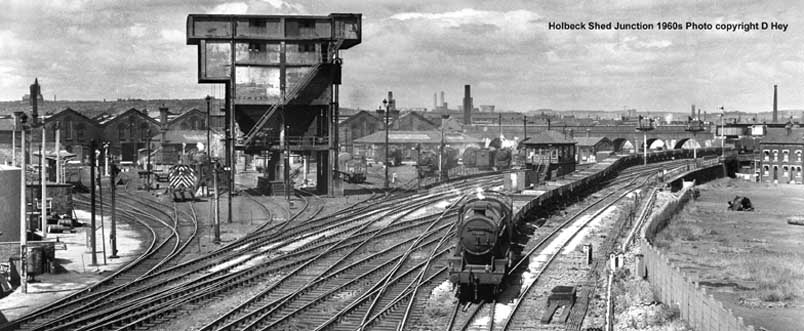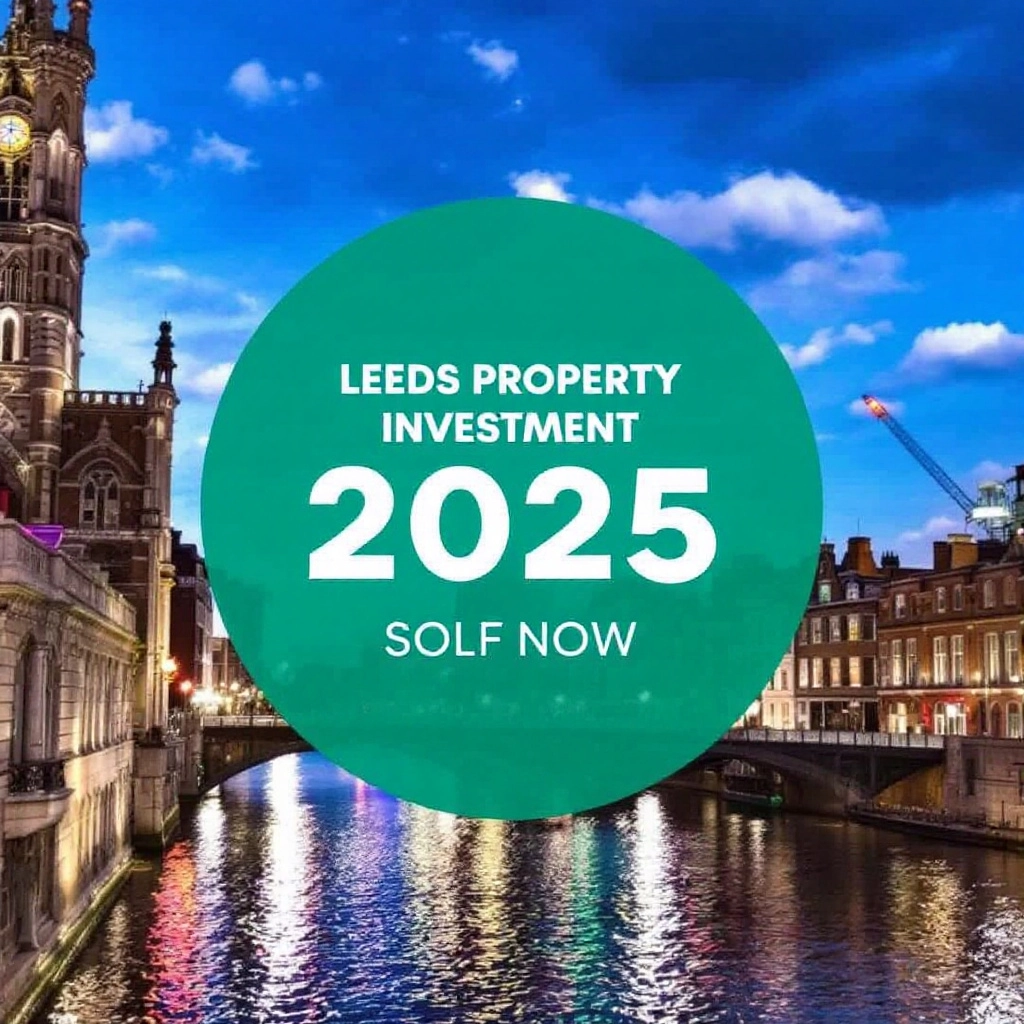Comprehensive Area Guide for Leeds
Welcome to Palace Auctions London’s comprehensive guide to Leeds, a vibrant and rapidly evolving city in West Yorkshire, England. This guide is designed to provide you with in-depth insights into Leeds’ property market, demographics, amenities, and future prospects, helping you make informed decisions about property investments in this dynamic city.
Historical Overview and Significance
Leeds boasts a rich history that spans over a millennium, evolving from an Anglo-Saxon township to a major industrial powerhouse and now a thriving modern metropolis. The city’s name, derived from “Loidis,” was first mentioned by the Venerable Bede in the 8th century, marking its early significance

This 1560 map of Leeds illustrates the city’s early layout, showcasing its transition from a modest settlement to a burgeoning cloth-trading town during the Tudor period.
Leeds’ transformation into a major economic center began in the 16th century when it emerged as a significant player in the woolen-manufacturing trade, challenging established centers like York and Beverley. The Industrial Revolution marked a pivotal period for Leeds, catalyzing its growth from a market town to an industrial hub. The city became renowned for its textile industry, particularly wool and flax, with numerous mills dotting the landscape
 Property for sale by Auction Black and white photo of a bustling railway junction in 1960s Leeds, featuring numerous train tracks and a large signal box. A steam locomotive with freight cars is visible on the right, echoing an era when the city was more about trains than property investment advice. Presented by Palace Auctions
Property for sale by Auction Black and white photo of a bustling railway junction in 1960s Leeds, featuring numerous train tracks and a large signal box. A steam locomotive with freight cars is visible on the right, echoing an era when the city was more about trains than property investment advice. Presented by Palace Auctions
The Leeds and Holbeck Railway Junction, depicted above, symbolizes the city’s industrial growth and its importance as a transportation hub during the 19th century. The completion of the Leeds and Liverpool Canal in 1816 and the arrival of the railway in 1848 further stimulated the city’s growth, transforming it into a major center for locomotive engineering. By the 19th century, Leeds had diversified its industrial base to include engineering, printing, and manufacturing.
The city also established itself as a significant center for financial and legal services, a trend that continued into the 20th century. Today, Leeds stands as the UK’s fastest-growing city and a major economic hub, driving a city region with a £64.6 billion economy and a workforce of 1.37 million. The city’s economy is diverse, with key sectors including financial and business services, digital and technology industries, healthcare, and life sciences. Leeds is also recognized for its high rate of private sector job growth and is home to numerous fast-growing firms.
Demographics and Population
As of the 2021 Census, Leeds boasted a population of approximately 812,000, marking an impressive 8.0% increase from the 2011 Census figure of around 751,500. This growth rate outpaces both the overall increase for Yorkshire and The Humber (3.7%) and the national increase for England (6.6%), highlighting Leeds’ attractiveness as a place to live and work. The age distribution in Leeds reflects a relatively young and dynamic population:
- The median age increased slightly from 35 years in 2011 to 36 years in 2021, still lower than England’s median age of 40 years
- The largest age group in 2021 was those aged 50 to 54 years
- There was a significant 14.0% increase in the 50 to 64 years age group, growing by approximately 17,200 people
- Interestingly, the 20 to 24 years age group saw a slight decrease of 2.0%, or just over 1,400 people
This age distribution suggests a balanced market for property investors, with opportunities in both family homes and properties catering to young professionals and students. Leeds’ ethnic composition has become increasingly diverse over the past decade:
- In 2021, 79.0% of Leeds residents identified as “White,” down from 85.1% in 2011
- The percentage of residents identifying as “Asian, Asian British or Asian Welsh” increased from 7.8% to 9.7%
- Those identifying as “Black, Black British, Black Welsh, Caribbean or African” grew from 3.4% to 5.6%
This increasing diversity contributes to Leeds’ vibrant cultural scene and may influence property preferences and investment opportunities in different areas of the city.
Economic Landscape
Leeds’ economy is characterized by its diversity and resilience. The city has successfully transitioned from its industrial past to become a modern, service-oriented economy. Key economic indicators include:
- Diverse Sectors: Leeds has a strong presence in financial services, legal services, and retail, with over 109,000 companies generating 5% of England’s total economic output
- Education Hub: Home to four universities, Leeds has a large student population, contributing to a dynamic and skilled workforce
- Private Sector Growth: Leeds boasts the fastest rate of private-sector job growth among UK cities and the highest ratio of private to public sector jobs
- Innovation and Technology: The city is emerging as a hub for digital and technology industries, attracting investment and talent in these high-growth sectors
- Healthcare and Life Sciences: Leeds is a significant center for healthcare innovation and life sciences research, supported by its strong academic institutions
This economic diversity provides a solid foundation for property investment, as it supports a range of housing needs from student accommodation to high-end residential properties for professionals.
Property Market Analysis
The Leeds property market in Q4 2024 presents a dynamic landscape with opportunities for various types of investors. Here’s a detailed breakdown of the current market trends:
Average Prices and Property Types
As of the latest data, the average property price in the Leeds postcode area stands at £273,000, with a median price of £226,000. This represents a slight decline of £5,000, or 2%, over the past twelve months. Breaking down the average prices by property type as of August 2024:
- Detached properties: £445,000
- Semi-detached properties: £265,000
- Terraced properties: £205,000
- Flats and maisonettes: £163,000
These figures indicate a diverse property market catering to various investment budgets and strategies.
Market for First-Time Buyers and Home-Movers
- First-time buyers paid an average of £212,000 in August 2024, up from £202,000 in August 2023
- Home-movers paid an average of £292,000 in August 2024, an increase from £280,000 a year earlier
These trends suggest a growing market for both entry-level properties and larger homes, presenting opportunities for investors targeting different segments of the market.
Market Dynamics
The Leeds property market is currently characterized as a sellers’ market, with 51% of properties marked as “Sold STC” or “Under Offer”. This competitive environment for buyers indicates strong demand, particularly for desirable property types. However, there has been a slight cooling in the market, with the percentage of homes sold and completed dropping from 64.12% between July 2022 and June 2023 to 57.39% since January 2024
Rental Market
The rental sector in Leeds has seen significant growth, reflecting the city’s appeal to young professionals and students:
- Average monthly private rent rose to £1,102 in September 2024, up 5.5% from £1,045 in September 2023
- Rental prices by property type (September 2024):
- Flats and maisonettes: £869
- Terraced properties: £1,112
- Semi-detached properties: £1,182
- Detached properties: £1,468
This robust rental market presents attractive opportunities for buy-to-let investors, particularly in areas popular with students and young professionals.
Projections for 2025
Looking ahead to 2025, the Leeds property market is expected to continue its growth trajectory, albeit at a more moderate pace. While specific projections for Leeds are not available, the broader UK market is anticipated to see a slight increase in house prices, with a projected growth of 1.6% over the year. Factors influencing the Leeds market will include economic conditions, interest rates, and local development projects.
Investment Opportunities
Leeds offers a wealth of investment opportunities, driven by ongoing development projects and the city’s economic growth. Here are some key areas for potential investors to consider:
1. South Bank Regeneration
This ambitious project aims to double the size of Leeds city center by repurposing 253 hectares of land south of the River Aire. The development is set to deliver:
- 8,000 new homes
- 35,000 new jobs
- A vibrant mixed-use community
This large-scale regeneration presents numerous opportunities for both residential and commercial property investments.
2. Kirkstall Road Riverside Regeneration
Latimer’s £350 million development on Kirkstall Road is transforming a former industrial site into a new district featuring:
- 1,620 homes
- Over 4,000 square meters of commercial space
- A riverside park
- A pedestrian bridge linking the development to the city center
Expected completion is set for 2029, making this an attractive medium-term investment opportunity.
3. Aire Park Development
Located on the former Tetley Brewery site, this project will feature:
- 651 modern homes
- Office blocks
- A hotel
- Shops and leisure facilities
- A two-hectare city park
With completion set for 2032, this development offers long-term investment potential in a prime location.
4. Build-to-Rent Sector
The build-to-rent trend is gaining momentum in Leeds, offering investors opportunities in purpose-built and professionally managed rental properties. This sector is particularly appealing due to the strong demand for rental housing among young professionals and students
5. Emerging Neighborhoods
Areas like Cliff Oaks, Armley, and Kirkstall are emerging as investment hotspots due to their strategic locations, affordable housing options, and ongoing regeneration efforts. These neighborhoods offer potential for capital appreciation and strong rental yields.
6. Leeds City Region Enterprise Zone
This zone offers a development pipeline of 4 million sq ft of employment space, with 600,000 sq ft already completed. Its strategic location with direct access to the national motorway network makes it ideal for investments in modern manufacturing and related supply chain companies.
Amenities and Infrastructure
Leeds boasts a wide range of amenities and infrastructure that contribute to its appeal as a place to live and invest:
Education
Leeds is home to several prestigious universities and a range of primary and secondary schools, making it an attractive location for families and students. The University of Leeds and Leeds Beckett University offer a wide range of undergraduate and postgraduate courses, contributing to a large student population and a vibrant academic atmosphere
Healthcare
Residents in Leeds have access to both public and private healthcare services. The National Health Service (NHS) provides primary care facilities, hospitals, and specialist services throughout the city. Private healthcare providers are also available, offering a range of treatments and services on a fee-for-service basis.
Shopping Centers
Leeds is renowned for its diverse shopping scene, catering to various tastes and budgets. The city center is packed with high-street favorites and high-end spots, offering a vibrant shopping experience. Major shopping centers include:
- Trinity Leeds
- Victoria Leeds
- The Core
- Merrion Centre
Parks and Recreation
Leeds offers numerous green spaces and parks, providing residents with ample opportunities for outdoor activities. Notable parks include:
- Roundhay Park: One of the largest city parks in Europe, offering over 700 acres of parkland, woodland, lakes, and gardens.
- Golden Acre Park
- Temple Newsam
- Kirkstall Abbey
The city’s proximity to the Yorkshire Dales and Peak District National Parks also offers residents easy access to stunning natural landscapes for exploration and recreation.
Transport Links
Leeds boasts a comprehensive transport network that includes:
- Buses: An extensive bus network ensures easy travel within the city and access to nearby towns.
- Trains: Leeds Railway Station is one of the busiest in the UK, providing regular services for both national and regional routes.
- Cycling: The city has a growing network of cycle lanes, making it an increasingly bike-friendly destination.
This well-developed transport infrastructure enhances the city’s appeal for both residents and investors, ensuring easy access to various parts of the city and beyond.
Conclusion
Leeds presents a compelling case for property investment, with its rich history, diverse economy, and thriving property market. The city’s ongoing development projects, coupled with projected growth in both property values and rental yields, position it as a lucrative investment destination. Whether you’re interested in residential properties, commercial spaces, or mixed-use developments, Leeds offers a range of opportunities to suit various investment strategies.
At Palace Auctions London, we’re excited to bring you these investment opportunities in Leeds. Our auctions provide a transparent and efficient way to access this promising market. With our expertise and Leeds’ potential, we’re confident in helping you find the right property investment to meet your goals.
Why Choose Palace Auctions for Your Leeds Property Investment
- Comprehensive Market Knowledge: Our team possesses extensive knowledge of the Leeds property market, including current trends, property values, and investment opportunities. This expertise is crucial for making informed investment decisions
- Access to Exclusive Properties: We often have access to a range of exclusive properties that may not be available through traditional real estate channels, providing you with unique investment opportunities
- Expertise in Investment Strategies: We offer guidance on various property investment strategies, helping you maximize your returns. This includes advice on property types, locations, and timing of investments
- Strong Network and Partnerships: Our established relationships with developers, real estate agents, and financial institutions in Leeds facilitate smoother transactions and provide additional investment opportunities
- Reputation and Trust: Palace Auctions has built a reputation for reliability and trustworthiness, which is crucial for investors looking to make significant financial commitments in the Leeds property market
- Tailored Investment Opportunities: We offer tailored investment opportunities that align with your specific goals and risk profile, providing a personalized investment experience.
- Efficient Auction Process: Our modern auction methods, including online-only property auctions, offer a unique and efficient way to buy and sell properties in Leeds, attracting a broader range of investors who prefer the convenience and speed of online transactions.
By choosing Palace Auctions for your Leeds property investments, you’re partnering with a trusted, knowledgeable, and efficient auction house that can help you navigate the dynamic Leeds property market and achieve your investment goals.
For more information on local services and regulations in Leeds, please visit the official website of Leeds City Council: www.leeds.gov.uk.


